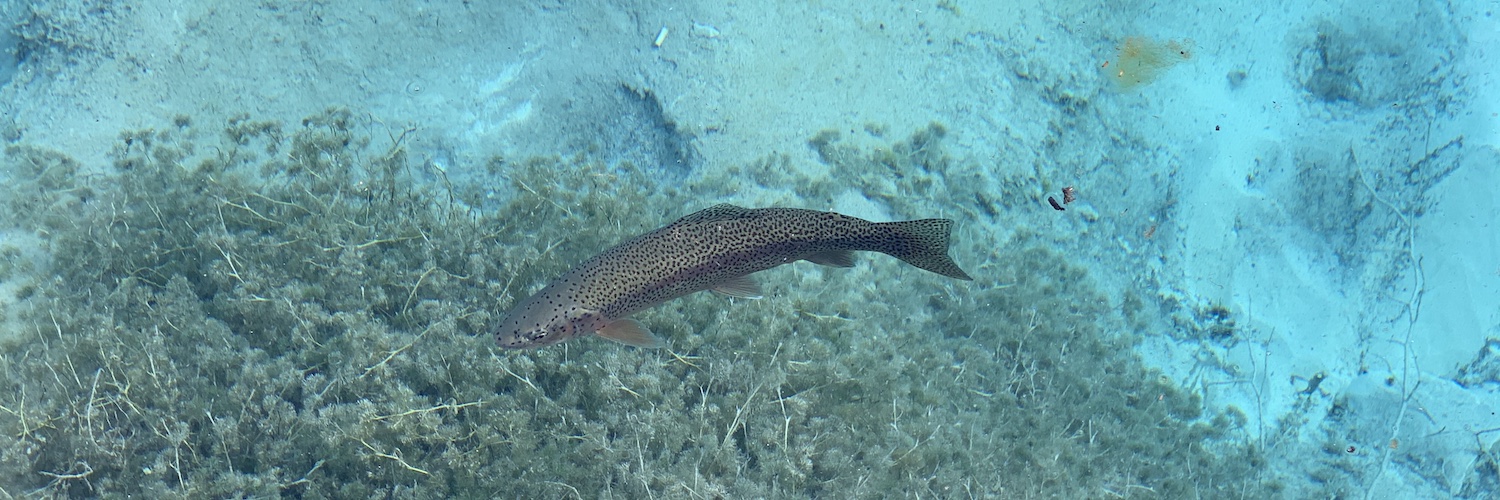Prof. Tanja Pipan, Ph. D.

Associate Professor at master degree study programme (2nd level) Earth and Environmental Sciences and doctoral degree study programme (3rd level) Enviornmental and Regional Studies at Postgraduate School ZRC SAZU. Research Advisor at ZRC SAZU Karst Research Institute and Full Professor of Karstology.
+386 5 7001 940
tanja.pipan@zrc-sazu.si
Education
- B.Sc. in Biology (University of Ljubljana, 1995)
- M.Sc in Biology (University of Ljubljana, 1999)
- Ph.D. in Biology (University of Ljubljana, 2003)
Research description
Dr. Tanja Pipan has broad research interests in subterranean biology, especially biodiversity, biogeography, and ecosystem function. She has active research projects on subterranean biodiversity, diversity and biogeography of epikarst invertebrates, ecology of shallow subterranean habitats, their fauna and evolutionary importance, and organic carbon flux in karst. She also focused her research on the distribution and potential sources of microplastics and microplastic fibers and the impact on the fragile karst ecosystem. She actively works with students as a lecturer and mentor, she has conducted the most intensive ecological study of the diverse subterranean fauna in the epikarst and study on the biological assessment of karst rivers. The results are published in leading international journals in the field of ecology, biology and speleobiology, as well as in monographs published by domestic (ZRC SAZU) and foreign (Oxford University Press, Springer, Academic Press/Elsevier) publishers.
Leading of national and European research projects (selection)
- National coordinator at EU project eLTER PPP: Integrated European Long-Term Ecosystem, Critical Zone and Socio-Ecological Research Infrastructure; Preparatory Phase Project, Horizont 2020, 2020 – 2025.
- National coordinator at EU project eLTER PLUS: European long-term ecosystem, critical zone and socio-ecological systems research infrastructure PLUS, Horizont 2020, 2020 – 2025.
- National coordinator at project Development of research infrastructure for the international competitiveness of the Slovenian R&D area – RI-SI-LifeWatch, Ministry of Education, Science and Sport, 2019 – 2021.
- National coordinator at EU project Advance_eLTER – Advancing the European Long-Term Ecosystem, critical zone and socio-ecological Research Infrastructure towards ESFRI, Horizont 2020, 2017.
- National coordinator at EU project eLTER – Long-Term Ecosystem and socio-ecological Research Infrastructure, Horizont 2020, 2015 – 2019.
- »LIFE KOČEVSKO: LIFE13 NAT/SI/000314: HT 8310 – Caves not open to the public and Proteus anguinus. Biological inventory of the cave fauna and preparation of reports before the cave remediation and after the cave remediation (monitoring) and preparation of reports, 2015 – 2019.
- Fauna in drip pools of Škocjan caves, Škocjan Caves Public Institute, Slovenia, 2015.
- Promotion of Slovene science abroad: Karstology in Altai Mountains – transfer of knowledge from classical karst in Slovenia to Russia, 2013 – 2015.
- Information and technology network for integration of long-term ecological, biodiversity and socio-economic studies in karst, ARRS project, 2008 – 2011.
- National coordinator at EU project LifeWatch – e-Science and Technology Infrastructure for Biodiversity Data and Observatories, 7th FP, 2008 – 2021.
- National coordinator at EU network project LTER – Long Term Ecological Research, 6th FP, since 2004.
Scientific synergistic activities abroad
- American University, Washington DC, USA (2003 – 2007, 2009-2018, every year).
- Karst Waters Institute, Leesburg, Virginia, USA (2004).
- Virginia Museum of Natural History, Martinsville, Virginia, USA (2005, 2006).
- Institute of Speology “Emil Racovitza”, Cluj-Napoca, Romania (2006).
- Universidad de La Laguna, Departamento de Biología Animal, La Laguna, Spain (2009).
- Université Paul Sabatier, Toulouse, France (2010).
- Institute of Entomology, Biology Centre ASCR, Češké Budějovice, Czech Republic (2011).
- Altaisky State Nature Biosphere Reserve, Gorno-Altaisk, Russia (2011, 2013 – 2019, every year).
- National University of Ireland, Department of Botany, Galway, Ireland (2012).
- Université Lyon 1, Laboratoire d’Ecologie des Hydrosystèmes Naturels et Anthropisés, Lyon, France (2012).
- Instituto do Carste, Belo Horizonte, Brazil (2013).
- International Joint Research Centre for Karstology and Yunnan International Karst Environmental Laboratory at the Yunnan Institute for Geography, Yunnan University, Kunming, China (2006, 2017, 2019).
- División de Desarrollo Sustentable, Lab. de Bioespeleología y Carcinología, Universidad de Quintana Roo, Mexico (2015 – 2019, every year).
Membership and academic titles
- Member of the International Society for Subterranean Biology: Societéte Internationale de Biospéologie (SIBIOS).
- Associate editor at the international scientific journal International Journal of Speleology.
- Guest invited editor at the international scientific journal Diversity.
- Elected member of the Senate of School of Environmental Sciences, University of Nova Gorica.
- Elected member of the Scientific committee at the Karst Research Institute ZRC SAZU.
- President of the commission for master defences, School of Environmental Sciences, University of Nova Gorica.
- President of the commission for students affairs, School of Environmental Sciences, University of Nova Gorica.
- Deputy director of the graduate academic programme Karstology, III. level, University of Nova Gorica.
- Consultant in the preparation of the programme for creation a UNESCO Chair on Karst Education, Graduate School, Karstology, III. level, University of Nova Gorica
- President of the Commission for grants and awards at ZRC SAZU.
- Govermental nomination as a Slovene representative in the European Strategy Forum on Research Infrastructures (ESFRI) and in the Strategic Working Group for the field of Environment (ENV SWG).
Grants and awards
- Grant for the most significant young researcher at ZRC SAZU for scientific work.
- SIBIOS (Société Internationale de Biospéologie) prize for the best presentation during the XVIIth International Symposium of Biospeleology at Raipur, India.
- Grant awarded for the most promising young scientist at the Trans-KARST 2004 International Transdisciplinary Conference on Development and Conservation of Karst Regions at Ha Noi, Vietnam.
- Elected head and coordinator of Slovenia LTER (Long-Term Ecological Research) network.
- Grant from the Slovenian Science Foundation for the advanced scientific study in the USA.
- Grant from the Word Federation of Scientists (WFS), National Scholarship Programme.
- Grant from UNESCO IGCP Project 513 „Global Study of Karst Aquifers and Water Resources” for an interesting and innovative project presented at the Cvijic karst 2005 Conference in Belgrade and Kotor.
- Karst Waters Institute „Distinguished Service Award” for service on the Time in Karst symposium, Postojna, Slovenia.
- Nominated by UNG and ZRC SAZU for the Miroslav Zei Award for Outstanding Achievements at NIB (National Institute of Biology) in 2015.
- The recipient of the ZRC SAZU Gold Award for top scientific research results.
- Selected by a panel of experts on the list of 50 Ona Plus žensk/women.
- Selected by the expert commission at the first reception of scientists at the President of the Republic of Slovenia, Borut Pahor (11. 1. 2018).
Original scientific article
- MAMMOLA, .S, AMORIM, I. R., BICHUETTE, M. E., BORGES, P. A. V., CHEEPTHAM, N., COOPER, S. J. B., CULVER, D. C., DEHARVENG, L., EME, D., LOPES FERREIRA, R., FIŠER, C., FIŠER, Ž., JUGOVIC, J., PIPAN, T., ZAGMAJSTER, M., et al. (2020): Fundamental research questions in subterranean biology. Biological reviews, doi: 10.1111/brv.12642.
- PIPAN, T., CHRISTMAN, M., CULVER, D. C. (2020): Abiotic community constraints in extreme environments : epikarst copepods as a model system. Diversity, 12, 7, doi: 10.3390/d12070269.
- KOZEL, P., PIPAN, T. Specialized aquatic subterranean communities are probably most species-rich in the thickest epikarst. Limnologica, ISSN 0075-9511, 81, 1-9, doi: 10.1016/j.limno.2020.125756.
- PILOTTO, F., KÜHN, I., ADRIAN, R., ALBER, R., ALIGNIER, A., ANDREWS, C., BÄCK, J., BARBARO, L., BEAUMONT, D., BEENAERTS, N., PIPAN, T., et al. (2020): Meta-analysis of multidecadal biodiversity trends in Europe. Nature communications, 11, doi: 10.1038/s41467-020-17171-y.
- MEJIA-ORTIZ, L. M., CHRISTMAN, M., PIPAN, T., CULVER, D. C. (2020): What’s the temperature in tropical caves?. PloS one, 15, 12, 1-21. doi: 10.1371/journal.pone.0237051.
- DUMNICKA, E., PIPAN, T., CULVER, D. C. (2020): Habitats and diversity of subterranean macroscopic freshwater invertebrates : main gaps and future trends. Water, 12, 8, doi: 10.3390/w12082170.
- MAMMOLA, S., PIANO, E., CARDOSO, P., VERNON, P., DOMÍNGUEZ-VILLAR, D., CULVER, D. C., PIPAN, T., ISAIA, M. (2019): Climate change going deep : the effects of global climatic alterations on cave ecosystems. The anthropocene review, doi: 10.1177/2053019619851594.
- MUSCHE, M., ADAMESCU, M., ANGELSTAM, P., BACHER, S., BÄCK, J., BUSS, H. L., DUFFY, C., FLAIM, G., GAILLARDET, J., GIANNAKIS, G. V., PIPAN, T., et al. (2019): Research questions to facilitate the future development of European long-term ecosystem research infrastructures : a horizon scanning exercise. Journal of environmental management, 250, 1-17, doi: 10.1016/j.jenvman.2019.109479.
- KOZEL, P., PIPAN, T., MAMMOLA, S., CULVER, D. C., NOVAK, T. (2019): Distributional dynamics of a specialized subterranean community oppose the classical understanding of the preferred subterranean habitats. Invertebrate biology, doi: 10.1111/ivb.12254.
- PIPAN, T., PETRIČ, M., ŠEBELA, S., CULVER, D. C. (2019): Analyzing climate change and surface-subsurface interactions using the Postojna Planina Cave System (Slovenia) as a model system. Regional environmental change, 19, 2, 379-389, doi: 10.1007/s10113-018-1349-z.
- MEJIA-ORTIZ, L. M., PIPAN, T., CULVER, D. C., SPROUSE, P. (2018): The blurred line between photic and aphotic environments : a large Mexican cave with almost no dark zone. International journal of speleology, 47, 1, 69-80, doi: 10.5038/1827-806X.47.1.2155.
- PIPAN, T., CULVER, D. C., PAPI, F., KOZEL, P. (2018): Partitioning diversity in subterranean invertebrates : the epikarst fauna of Slovenia. PloS one, 13, 5, 1-19, doi: 10.1371/journal.pone.0195991.
- KOZEL, P., PIPAN, T., ŠAJNA, N., POLAK, S., NOVAK, T. (2017): Mitigating the conflict between pitfall-trap sampling and conservation of terrestrial subterranean communities in caves. International journal of speleology, 46, 3, 359-368, doi: 10.5038/1827-806X.46.3.2123.
- PIPAN, T., CULVER, D. C. (2017): The unity and diversity of the subterranean realm with respect to invertebrate body size. Journal of caves and karst studies : a publication of the National Speleological Society, 79, 1, 1-9.
- PIPAN, T., CULVER, D. C. (2016): Contributions to speleobiology appearing in Acta Carsologica 45, 2, 123-129, doi: 10.3986/ac.v45i2.4318.
Scientific monograph
- BLATNIK, M., CULVER, D. C., GABROVŠEK, F., KNEZ, M., KOGOVŠEK, B., KOGOVŠEK, J., LIU, H., MAYAUD, C., MIHEVC, A., MULEC, J., ALJANČIČ, M., OTONIČAR, B., PETRIČ, M., PIPAN, T., et al. (2020): Karstology in the classical karst, (Advances in karst science). Cham: Springer.
- CULVER, D. C., PIPAN, T. The biology of caves and other subterranean habitats. (2019): 2nd ed. New York: Oxford University Press.
- CULVER, D. C., PIPAN, T. Shallow subterranean habitats: ecology, evolution, and conservation. (2009): New York: Oxford University Press
Independent scientific chapter in a monograph
- CULVER, D. C., PIPAN, T. (2019): Ecological and evolutionary classifications of subterranean organisms. In: WHITE, William Blaine (ed.), CULVER, David C. (ed.), PIPAN, Tanja (ed.). Encyclopedia of caves. 3rd ed. London, Academic Press.
- CULVER, D. C., BRANCELJ, A., PIPAN, T. Epikarst communities. In: WHITE, W. B. (ed.), CULVER, D. C. (ed.), PIPAN, T. (ed.). Encyclopedia of caves. 3rd ed. London, Academic Press.
- PIPAN, T., CULVER, D. C. (2019): Shallow subterranean habitats. In: WHITE, W. B. (ed.), CULVER, D. C. (ed.), PIPAN, T. (ed.). Encyclopedia of caves. 3rd ed. London, Academic Press.
- PIPAN, T., CULVER, D. C. Wetlands in cave and karst regions. (2019): In: WHITE, W. B. (ed.), CULVER, D. C. (ed.), PIPAN, T. (ed.). Encyclopedia of caves. 3rd ed. London, Academic Press.
- CULVER, D. C., PIPAN, T. Insects in caves. (2018): In: FOOTTIT, R. G. (ed.), ADLER, P. H. (ed.). Insect biodiversity : science and society. Vol. 2. 1st ed. Chichester: Wiley-Blackwell.



